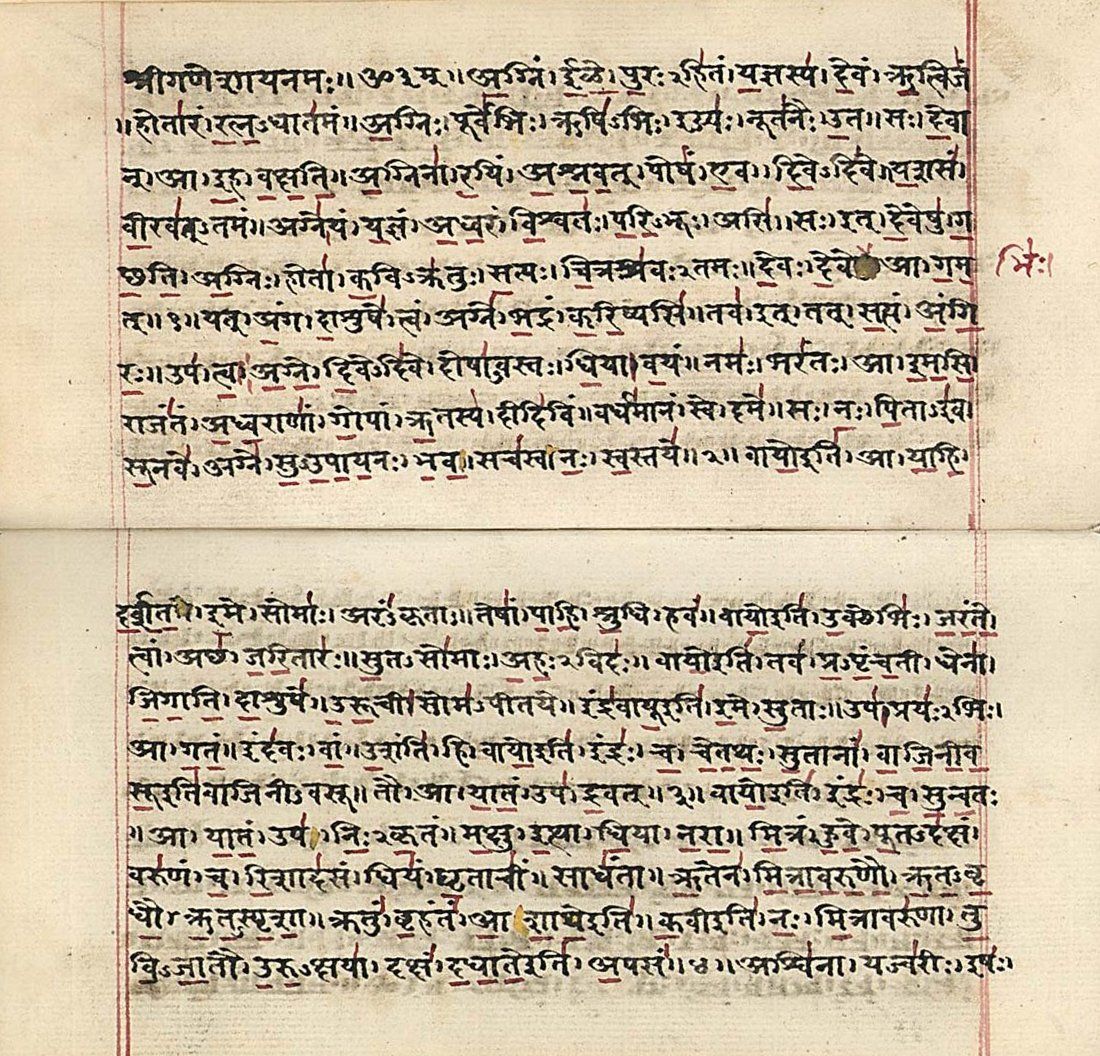
Course Description
This course will introduce students to the vast and ancient world of Vedic Sanskrit. It is aimed at a student competent in Classical Sanskrit. It begins on the assumption that students know their Classical grammar. Some students, however, may find Module 1 of the course to be an effective refresher, as it teaches the difference between Classical and Vedic grammar. Because the course deals with texts and a language that predates the Sanskrit grammarian tradition, it is not framed in vyākaraṇa terms and concepts, but rather through the lens of historical linguistics.
The weekly course modules will introduce students to a range of readings in Vedic Sanskrit that grow in difficulty in three ways. Firstly, readings will become more linguistically archaic. Secondly, the texts will transition from prose to meter. Thirdly, the genre of the text will change from more-or-less paratactic narration to poetic enigma. While this is not a course on Vedic history, culture, ritual, per se along the way there will be opportunity to discuss the hypothetical usages of these texts.

Course Preview
Course Modules
Module 1 — Vedic Verbal Morphology
Module 2 — Vedic Nominal Morphology
Module 3 — Middle Vedic Prose, Introduction to the Brāhmaṇas
Module 4 — Early Vedic Prose
Module 5 — The Short Vedic Metrical Composition
Module 6 — The Longer Vedic Metrical Composition
Module 7 — The Dialogue Hymn
Module 8 — The Deeds of Indra
Module 9 — Speculative and Riddle Hymns, Poetic Repair, the Omphalos
Students Will Receive:
- 18 Pre-recorded class sessions + recordings (90 min each)
- 5 YSACP Credits
- 27 Hours of CE credit with YA
- Additional Readings (PDF)
- Final Exam
- Yogic Studies Certificate upon completion (PDF)
- Access to the private Yogic Studies Online Community Forum
Dr. Caley Smith
S&R Palvia Endowed Veetraag Vigyaan Professor in Jain Studies at Georgia College and State University in Milledgeville, Georgia
Caley Smith is a scholar of early South Asian religious history and political imagination. His work focuses primarily on the conceptual continuities and disruptions between the Vedas and emergent ascetic and householder traditions. He is taking a new position this August as the S&R Palvia Endowed Veetraag Vigyaan Professor in Jain Studies at Georgia College and State University in Milledgeville, Georgia. His current book project, The Invisible Mask, explores the ritual impersonation of the god Indra its influence on the impersonation-recitation traditions of early Jainism, Buddhism, and Hinduism.
This course is eligible for 27 hours of Continued Education (CE) credits with Yoga Alliance

Stay Informed
Sign up for the Yogic Studies mailing list to find out first about upcoming courses, podcast episodes, promotions, events, and the latest research delivered straight to your inbox.


